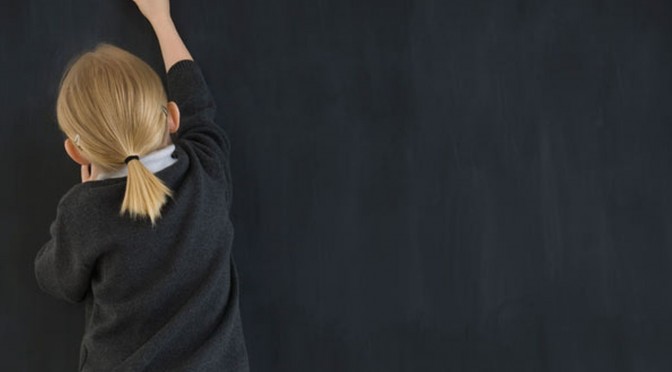Growing up my mother used to tell me that the Jewish people valued education above all else because, it was the one thing we could take with us when fleeing persecution. I don’t know if that is true, but it left an indelible mark on my life. Education, the pursuit of it and the promotion of it, has always been important to me. When it came time to launch my own children on to their educational journey I didn’t hesitate to enroll them in public schools.
As a matter of fact David and I live in one of the best public school systems in Texas. Our high school is ranked #99 out 1,725 high schools. Our school system is widely recognized for its high test scores and for a gifted and talented student population that is 18% – 5% higher than the average school system in Texas. At every turn I have been impressed by the professionals that serve in our local elementary school. Indeed, when the tragedy at Newtown occurred I instantly thought of our own teachers and children and knew -without a shadow of a doubt – that my children’s teachers would have acted as heroically as those brave teachers we lost.
The Tide Does Not Turn Instantly, But Slowly And Gradually Until Suddenly You Are Lost At Sea.
Lucy has been in public school since 1st grade and although there have been small things here and there that make me scratch my head about the public school system I have been mainly satisfied with my child’s education. Things changed this year.
When Max started school he was behind from day one. He is left-handed and a boy with a speech impediment. Although he struggled in Kindergarten his teacher was loving and patient and she reassured us that Max would outgrow most of his struggles. He entered first grade and according to the school assessments he was “at the bottom of the normal range, but still normal”. This means, “he doesn’t qualify for extra help”. They did provide him with reading tutoring in school (or SSI for you educators). Starting in November a series of events tipped me off that something was wrong.
First, I was having parent volunteers telling me repeatedly how QUIET Max was in class. This is not Max’s personality so that surprised me. I then began to realize that most of Max’s school work was coming home blank, empty or incomplete. He was having huge tantrums at home — tantrums that sometimes resulted in a 3-4 hour cry-fest. I couldn’t figure out what was going on and then a small conversation with his cousin crytalized the picture for me. Max admitted that he was embarrassed when he stuttered and stammered in front of his friends.
Max doesn’t talk in school because he doesn’t want people to know that he stutters
Max doesn’t ask for help because he doesn’t want people to know that he can’t read the directions
Max doesn’t complete his work because his handwriting is sloppy and undeveloped and it embarrasses him
I still can barely think about it without crying. School had become a horrible torturous environment for him. BUT, he’s “normal”. His word recognition and his ability to memorize sight words (even though he really can’t read) all kept him on the low end of “normal”. But he wasn’t normal, and he knew it.
I wrote the teachers, I talked to the principal and we had our ARD meeting and they put him in line to be evaluated for speech. However, this is where the system breaks down. It will take them up to 60 days to evaluate Max and then another 30 days to get him into any intervention program. That is the remainder of the school year. In other words, his 1st grade year was a waste. None to very little progress was made on his education this year.
In the meantime I hired a private speech therapist and hired a private reading tutoring service to work with him. He’s getting better and gaining confidence but it is slow. His teacher, although kind, is overwhelmed with her other 18 students and cannot possibly dedicate the time to Max that he requires. Besides, he’s “normal”.
If It Ain’t One Thing It’s Another
Although this was upsetting and I was worried I was willing to put the effort in to make his public school career work. That was until I received an email from Lucy’s teacher expressing concerns over her behavior. LUCY? BEHAVIOR PROBLEMS? You could have knocked me over with a feather. The teacher explained to me in exasperated tones that Lucy was not listening to directions in class and had to ask for the same directions to be repeated again and again. She was moving Lucy to the front of the class and could I “please talk with her at home about her behavior”. When I approached Lucy with this issue she explained that she didn’t realize she wasn’t listening and that school was “the most boring thing EVER”. I made an appointment with the teacher to explore the issue further, but before that meeting I received her report card – 5 A’s and 1 B. So my poorly behaved child, who wasn’t listening had still managed to pull off an almost perfect report card. Disconnect? Yep. When I met with the teacher she couldn’t describe the problem in any further detail and had no insight. Indeed within two weeks Lucy had been moved to the front of the class and then returned to the back of the class. What was the purpose? And in the meantime Lucy, who values being the perfect rule follower, had gone through a week of anxiety, lost confidence in her teacher and now thinks her teacher hates her.
The Tipping Point
Things add up. My unhappiness with the school system wasn’t just about these two incidents. It was a collection of issues including; Max being teased, Lucy dealing with “cool girls” and their blatant dislike of her, the school system’s obsessive interest in nutrition and weight to the point that Lucy thinks she’s fat and the kids now have gym three days a week. I’m not inherently opposed to gym three times a week but I am when it comes at the sacrifice of art class and library and music which now only happen every other week. I might possibly even be able to stomach all this until you add STAAR testing on top of it all. Where do I start with the standardized test issue and the fact that is has so corrupted our school system that it no longer even resembles the school system I attended 30+ years ago. When Lucy spent two days of school on PRACTICE TESTS and then came home crying because she had to stay in from recess to retake the test because she failed — and by “fail” I mean she got a 79% which wasn’t acceptable by the teacher’s standards. ON A PRACTICE TEST. That was the tipping point. I was done. There had to be a better option for educating my kids.
Crossroads
I was notified in early February that I wasn’t accepted into my PhD program. I was disappointed, but I was also relieved. I wasn’t sure that was the path God intended for me and so I took the rejection as a sign from God – “choose a different journey”. As I examined my children’s education and their struggles I couldn’t help but to think “I could do better”. Not that the teachers aren’t educated and professionally trained experts – they are and I appreciate that. However, the school system has these wonderful professionals ham-strung, hog-tied and unable to do their job. I spent weeks researching. I talked with every educational expert I could find from the kid’s previous teachers, to their reading tutor, speech therapist, other public school teachers, parents and people who research education. The conclusion? Homeschooling. If I wanted my children to have a well-rounded education that challenged them and allowed them to grow in their strengths and supported their weaknesses homeschooling was the only path to achievement.
And so I find myself in a position that I never expected. This coming Fall I will remove my children from the public school system and take on the challenging and exciting task of teaching them at home. I recognize that this is a large responsibility. I also know that many of you will not agree with my decision and that is ok. We can still be friends.
In the coming weeks I will share more with you regarding the research I conducted and how it lead me to this decision. I am not a person to make decision based purely on emotion and so as you can imagine my choice is based on facts – not rhetoric. I am not removing my children in an effort to isolate or protect them (from what? from whom?). I am removing my children in an effort to broaden their world beyond the standardized test. I want my children to be able to learn at the pace which allows them to fully understand a concept first before being pushed into the next stage.
Parenting is a series of crossroads, and all we can do is hope that we turn down the right road
 Max was sitting on the floor putting his shoes on and he looked up at me and said, “Mama, how do you think I’m doing in school?” I looked down and said, “I think you’re doing great. You’re picking up your grammar quickly, you are a natural at math and your cursive is unbelievable. But that isn’t the important question. How do YOU think you’re doing in school?” Max paused, looked up at me with those big brown eyes and said, “I think I’m doing GREAT! I’ve got this year nailed!”
Max was sitting on the floor putting his shoes on and he looked up at me and said, “Mama, how do you think I’m doing in school?” I looked down and said, “I think you’re doing great. You’re picking up your grammar quickly, you are a natural at math and your cursive is unbelievable. But that isn’t the important question. How do YOU think you’re doing in school?” Max paused, looked up at me with those big brown eyes and said, “I think I’m doing GREAT! I’ve got this year nailed!”




